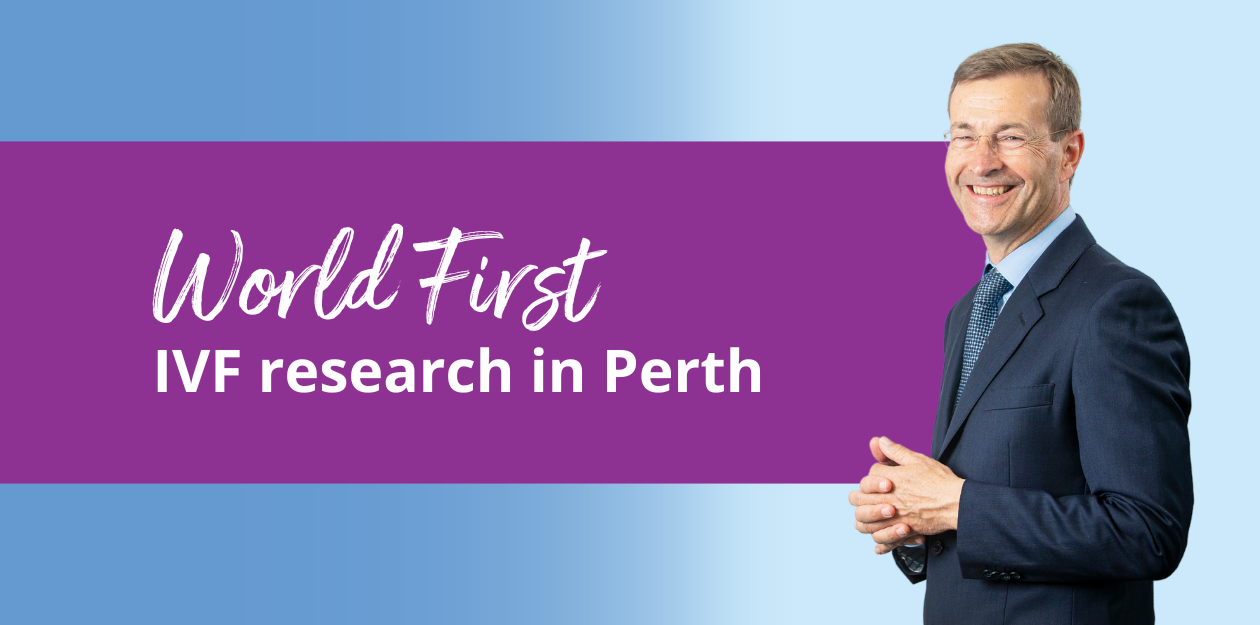Professor Roger Hart and his team have embarked on a world-first study with the hope to revolutionise the way IVF cycles are monitored.
Western Australian women are trialing world-first IVF technology which is poised to make the fertility journey smoother and give better access to IVF to regional women.
“We are recruiting 25 patients and are using world-first technology to monitor hormone levels in an IVF cycle via urine samples that can be done at home,” said Professor Hart, Medical Director of FSWA and National Medical Director of City Fertility’s National Group.
If proven effective, this part of the IVF process – which currently requires patients to visit a clinic for regular blood tests – will save time and stress, and for some, will overcome huge logistical challenges to undergo monitoring in an IVF cycle.
“Essentially, using this method of testing all that an IVF patient will need to do is download an application on their mobile phone, sync it with the clinic via the Cloud, wee on a stick and wait for the home smart box provided to relay the results to the treating clinic,” Professor Hart added.
“If this at-home device proves feasible it will open IVF up to regional patients, fly-in fly-out workers and those in rural locations, lessening the burden of having to travel long distances to a clinic for blood tests in between juggling work.”
Perth couple Laura and Tim have been on their fertility journey since last July and know all too well how challenging the process can be.
Aged 36 and 34, respectively, the pair was blessed with a daughter almost three years ago on their first try but have undergone three cycles since without any luck to this point.
“Tim is a fly-in, fly-out at the mines and I work two days a week, so if I need to have a blood test when Tim’s away I have to schedule someone to come and look after our little girl for me.”
Laura, who is a part-time teacher, said technology like the one Professor Hart is trialing would be positive for everyone involved.
“If I could have done the same thing at home, by way of a quick urine sample, it would have made things so much smoother,” she said.
“Everyone has a mobile phone these days, after COVID-19 we all know how a QR code works, and smart technology is the way of the future, so there really is no reason why we can’t use that to our advantage and help more people have the families they want,” Professor Hart added.
“At Fertility Specialists of Western Australia and City Fertility we are all about the patient experience and believe that any advancement that makes the experience smoother is essential to pursue.”
The six-month study is due to begin soon, with results expected next year.
If you’d like to find out more about our fertility services or discuss how we can help, contact our friendly staff at 1300 392 393 or fertilitywa@cityfertility.com.au today.


